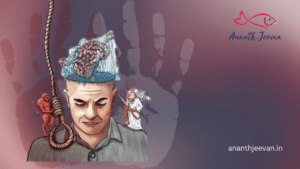
Suicide is the act of hurting oneself with the intent to die. Suicide occurs in the context of major depression, but it may also occur as a result of substance abuse or another disorder. Suicide can also occur in the absence of any psychiatric disorder, like prolonged bereavement, declining health, or certain life situations.
Suicide is a serious concern. The suicide rate is increasing every year. Suicide is a serious emotional, physical, and mental health problem. There are misconceptions about suicide that people tend to strongly believe, which affects the way they perceive suicidal issues.
Here are some of the truths about suicide:
Talking about suicide will not encourage or increase the risk of suicide.
Talking about death is uncomfortable, and when it comes to suicide, people are hesitant because they have the wrong belief that it will increase the risk of suicide. However, not talking about it will increase the risk. A suicidal person is all alone in their highest state of taking their life. This is when a family member or friend should talk about it. Discussing being suicidal is not going to put any ideas into that person’s head because that idea is already in their mind.
People talk about suicide. They will never attempt or die by suicide.
The truth about people who talk about wanting to die or joke about death is that they plead or cry for help, and these are the people at higher risk of suicide. You can start the conversation by asking them if they are thinking about suicide and guiding them to seek the necessary help and support they need.
Suicide doesn’t make a person bad, selfish, or ungrateful.
Being suicidal doesn’t signify that the person is ungrateful about life. The common things that people say to get on with life are “count your blessings” and “life is beautiful; you live only once.” It is important to understand that not everyone feels that way. A person who is thinking about suicide often feels they are a burden to others, which denotes that they are not being selfish. Make them feel inclusive and communicate how valued they are in your life.
As a suicide survivor, they will never make another attempt.
A suicide attempt is a primary indicator that the individual is more likely to die by suicide.
A suicidal person can never be stopped.
Suicide can be prevented by providing the person with the necessary mental health care and support from families, professionals, and friends. Families and friends can play a major role in providing them with immediate care, like staying with the person and helping them make plans for their life. This can make them feel hopeful and count on others.
People who are suicidal are attention seekers.
Never make the mistake of denying taking care of someone who is struggling with suicide simply because you think they are seeking attention. All suicides should be treated, whether the person intends to die or not.
Not everyone is suicidal; only certain people are.
Suicide can affect anyone of any age group. The cause could be psychiatric or non-psychiatric.
No one can prevent suicide
It would be amazing if all the steps and precautions were taken and no one would die by suicide, but that is not the reality. Sometimes, in the battle, suicide wins.
A promise to keep confidential when there is a threat of harming oneself
When a person confides that they are suicidal and planning to take their life, the confidentiality should not be maintained, and they should be reported to their family or friends.
Suicide happens without a warning or a sign.
When the survivors were asked if they hid their intention of taking their lives, most of them responded that their intentions were never noticed or recognized by others. Here are a few warning signs:
- Sudden isolation from social life.
- Lack of interest in any activity.
- Talk or joke about death.
- Giving away their things and possessions to others.
- Self-blame: talking about being a burden to others.
- Extremely sad, hopeless, helpless, and worthless.
- Easily frustrated and sudden outburst of anger.
- Withdrawn from families and friends.
- Researching deaths and different ways of dying.
- Engaging in risky behavior with the intention of getting hurt or dying.
- Change in eating and sleeping habits.
- Self-harm behaviors include cutting oneself with sharp things or burning oneself. Notice any scars on their hands.
- They are hesitant to take any step or make any decision when solutions are offered to them.
Share
Here to help
If you need help, Ananth Jeevan is here.
Call our helpline (+91-9063-Jeevan) to talk to our counsellors
Download the AJ App (on Android and AppStore )
For Counselling appointments, use our WhatsApp number ![]()
